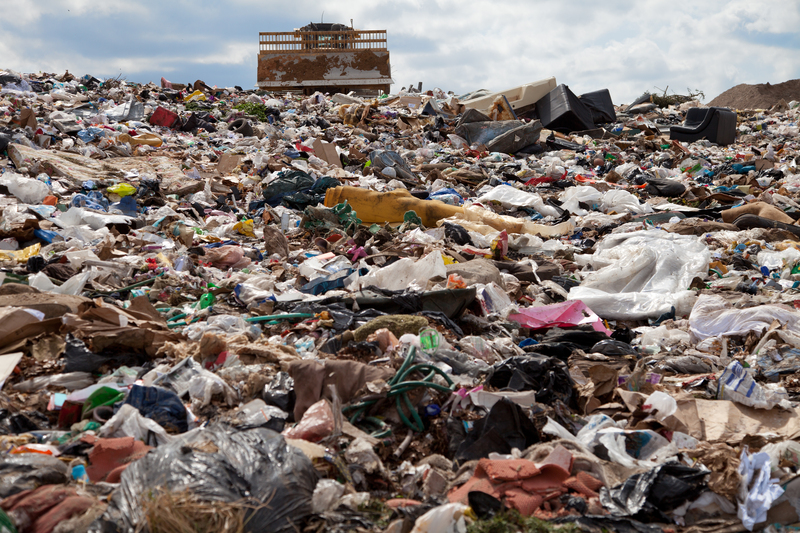Innovative Strategies to Minimize Manufacturing Waste
In today's fast-paced and environmentally conscious world, minimizing manufacturing waste is not only a business imperative but also a societal responsibility. Companies are under increasing pressure to adopt sustainable practices that decrease waste and enhance efficiency. This article explores innovative strategies that companies can employ to reduce waste, improve profitability, and protect the environment.
Understanding the Importance of Waste Reduction
Waste in manufacturing not only affects the bottom line but also has significant environmental impacts. According to the Environmental Protection Agency, the industrial sector is responsible for a large portion of waste produced globally. By reducing waste, manufacturers can:
- Decrease production costs
- Enhance operational efficiency
- Improve brand reputation as a sustainable business
- Comply with environmental regulations and avoid penalties

Analyzing the Types of Manufacturing Waste
Before implementing waste reduction strategies, it's essential to understand the different types of waste typically found in manufacturing:
1. Material Waste
Material waste occurs when raw materials are not used efficiently, resulting in scrap and defective products. Identifying and addressing the root causes of material waste can significantly improve resource utilization.
2. Energy Waste
Energy waste refers to the unnecessary consumption of energy within manufacturing processes, often due to inefficient equipment or procedures. Reducing energy waste can lower costs and decrease carbon emissions.
3. Time Waste
Time waste involves any delay that disrupts the production process, such as equipment downtime or inefficient workflow. Streamlining operations can increase productivity and reduce downtime.

Innovative Strategies to Minimize Manufacturing Waste
1. Embrace Lean Manufacturing
Lean manufacturing is a systematic method focused on minimizing waste without sacrificing productivity. Key lean principles include:
- Identifying value from the customer's perspective
- Mapping the value stream to identify wasteful steps
- Creating a continuous workflow to ensure smooth processes
- Establishing a pull production system to meet customer demands precisely
- Continuously improving processes through feedback and iteration
Implementing lean manufacturing can result in significant improvements in efficiency and waste reduction.
2. Implement Automation and Technology
Automation and advanced technology can play a crucial role in reducing waste. By automating repetitive processes, manufacturers can:
- Enhance accuracy and consistency, reducing material waste
- Increase production speed and minimize time waste
- Optimize energy usage and decrease energy waste through smart systems
Deploying technologies such as Artificial Intelligence and IoT sensors can provide valuable insights and control over manufacturing processes, further minimizing waste.
3. Adopt Circular Economy Practices
Transitioning from a linear to a circular economy model can profoundly impact waste reduction. This involves designing products with their entire lifecycle in mind, ensuring that materials are reused, recycled, or remanufactured, thus reducing waste generation.
4. Enhance Supply Chain Collaboration
Collaborating with suppliers and partners is vital for reducing waste. Transparent communication and shared goals can lead to:
- Reduced overproduction through better demand forecasting
- Improved inventory management to prevent material obsolescence
- Standardized quality controls to minimize defects and scrap
Building a strong, collaborative network not only helps in waste reduction but also in creating a resilient supply chain.
5. Invest in Training and Employee Engagement
Educating employees about the importance of waste reduction and engaging them in improvement initiatives can drive meaningful change. Consider the following approaches:
- Conduct regular training sessions on efficient practices and the environmental impact of waste
- Encourage employee-led projects that focus on waste reduction
- Recognize and reward efforts that lead to significant waste minimization
A well-informed and motivated workforce can be a company's most valuable asset in minimizing manufacturing waste.
Conclusion
The modern manufacturing landscape demands innovative strategies to address waste sustainably. By implementing lean practices, leveraging technology, adopting circular economy principles, partnering with the supply chain, and engaging employees, manufacturers can make a significant impact. These strategies not only enhance operational efficiency and reduce costs but also support the global movement towards a more sustainable future.
Incorporating these innovative strategies into your manufacturing processes will not only benefit your company economically but also position it as a leader in environmental stewardship.